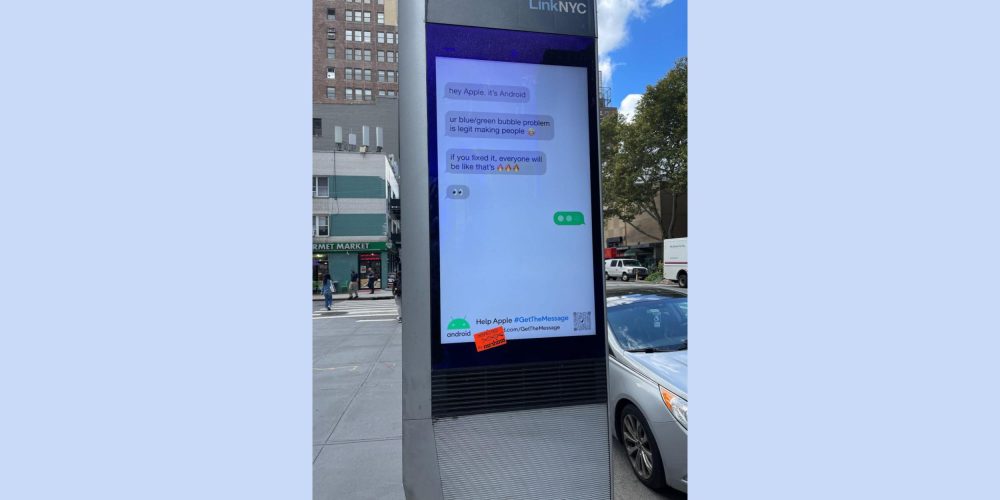
Before Google’s “Get The Message” campaign in August, Android’s Messages app was updated with iMessage reactions at the start of this year. In a very weird turn of events, Apple appears to be taking credit for Google adding iMessage reactions on Android.
As spotted by David Imel today, Apple’s iOS 16 “All New Features” page lists the following addition for the Messages app:
SMS Tapbacks on Android
React to SMS messages with a Tapback, and a corresponding emoji reaction will appear on recipients’ Android devices.
That text was added to the page recently, presumably with the launch of iOS 16 earlier this month. It was not listed during the iOS 16 preview cycle over the summer.
In late January, Google announced that its Messages app would convert iMessage reactions (known as “Tapbacks“) that iPhone users can send. Instead of them appearing as an annoying text (e.g., Loved “Testing” in the example below), it gets translated and appears in the corner of the message bubble, similar to the iPhone-to-iPhone experience.
Apple appears to be taking credit for Google adding iMessage reactions to Android’s Messages app in a rather odd decision that’s not factual. While Apple’s description is reflective of the end user experience, iMessage reactions on Android are not the result of the iPhone’s new operating system or anything Apple did/contributed. This feature was rolled out during the iOS 15 era, and it’s not available for all Android SMS/RCS apps, just Google’s default client.
One possible explanation is that Apple’s marketing copy is conflating that Google feature with a similar one added by iOS 16. If an iPhone owner is in a group chat with Android and other iOS users, all messages are sent via SMS, instead of iMessage. Before iOS 16, Tapbacks would be sent as SMS. In those cases, iOS 16 now, like Google, converts Tapbacks for iPhone users so that just the emoji appears. However, if that is the feature Apple is describing – it does not appear on the page – the copy would not need to mention Android.
This of course follows Tim Cook’s “I don’t hear our users asking that we put a lot of energy on that” statement on RCS for iPhone earlier this month.

Author: Abner Li
Source: 9TO5Google







